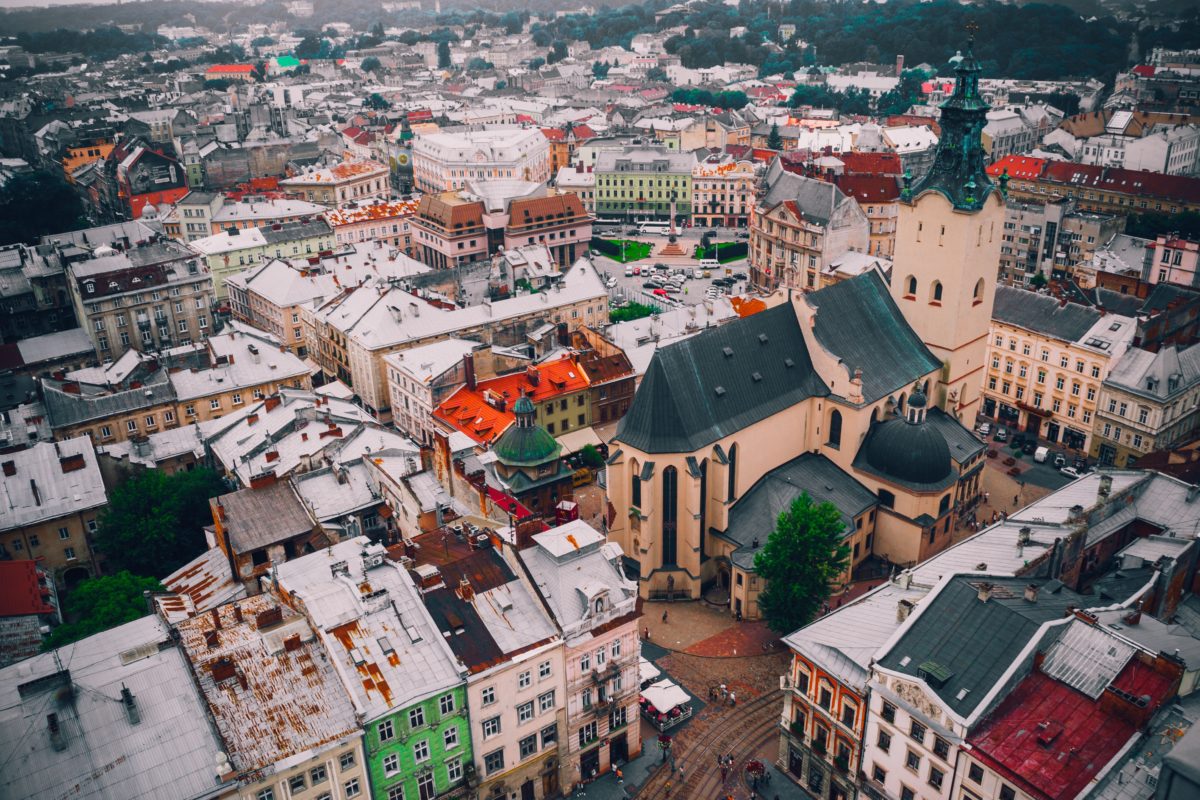Kyiv etc. This was not supposed to happen in today’s Europe, or at least, except for the Balkans: an invasion, occupation, takeover.
It seems like what happened when Soviet forces invaded Hungary in 1956 and Czechoslovakia in 1968. Poland avoided it in 1981 by more or less invading itself on the Soviets’ behalf. Of course the situation in Ukraine is not the same as any of these. They were only formally independent and the fighting was limited. It was all over quickly.
On the other hand (or another hand, since two seems too few), it feels more like what happened in Afghanistan in 2001 and Iraq in 2003 where there was resistance to U.S. forces, some continuing for decades, until the invaders finally left. God willing those eternities won’t be visited on people in Ukraine.
The Nuremberg tribunal concluded that wars of aggression are the “supreme international crime.” The mystery is why this came to many of our minds swiftly when the attack on Ukraine began, but less so during earlier wars in places like the Mideast. Maybe Putin was watching and thought, If they got away with that, why not me too?
I keep thinking of a recent New York Times column by Thomas Friedman, mostly because he quoted George Kennan from a Friedman interview in 1998. Kennan was central in writing the Cold War script for the U.S. He was brutally hardline on the Soviet Union. Seven years after the USSR collapsed, Kennan commented on the expansion of NATO to Russia’s borders: “I think it is a tragic mistake … We have signed up to protect a whole series of countries, even though we have neither the resources nor the intention to do so … We are turning our backs on the very people who mounted the greatest bloodless revolution in history to remove that Soviet regime … Of course there is going to be a bad reaction from Russia, and then [the NATO expanders] will say that we always told you that is how the Russians are—but this is just wrong.”
I quote Friedman not because I revere him. I consider this his only good column in 20 years. Nor was Kennan necessarily right, though it’s refreshing to hear such unexpected thoughts from an old Cold Warrior. But you have to be able to believe all this could at least possibly have gone differently.
I’m similarly touched by a recent piece by Pankaj Mishra, the Indian novelist, critic, historian etc., who says he keeps returning to fiction because only it can include all the contradictions and ambiguities of reality, unlike journalism or expert analysis. Perhaps he means features like commercials in the midst of the bombing. Count on Depends. Buy a Subaru. Go to Jamaica. Now back to Kharkiv. The invasion will not only be televised, it will be sponsored.
I had a word-drunk lit prof at Brandeis who once said, regarding one of the cul-de-sacs of the 1960s, “The trouble with these conflicts is they are deficient in resolubility.” Still, you gotta try. Why? Because once in a while you’ll succeed.
In a slightly more hopeful vein. I was glad to see the Liberals revoke the Emergencies Act last week, even before Doug Ford did it in Ontario, and maybe not unrelated.
It’s been irritating to see the right, including the far-right, absorb free speech and other civil liberties as their own cause. Historically those issues were the province of the left. It was voices of dissent and the marginalized who fought for free speech, largely because they knew how suppression felt, and were the first to suffer it. This redresses the balance, or it’s a start.
I’d even say Justin Trudeau dropped his usual stilted tone and looked most comfortable at the presser, when he paused in defending restrictions and shifted briefly to the positive: “…allow me to be very clear, people are allowed to express their disagreements…” Then BAM, back to cautious justification.
This column originally appeared in the Toronto Star.



